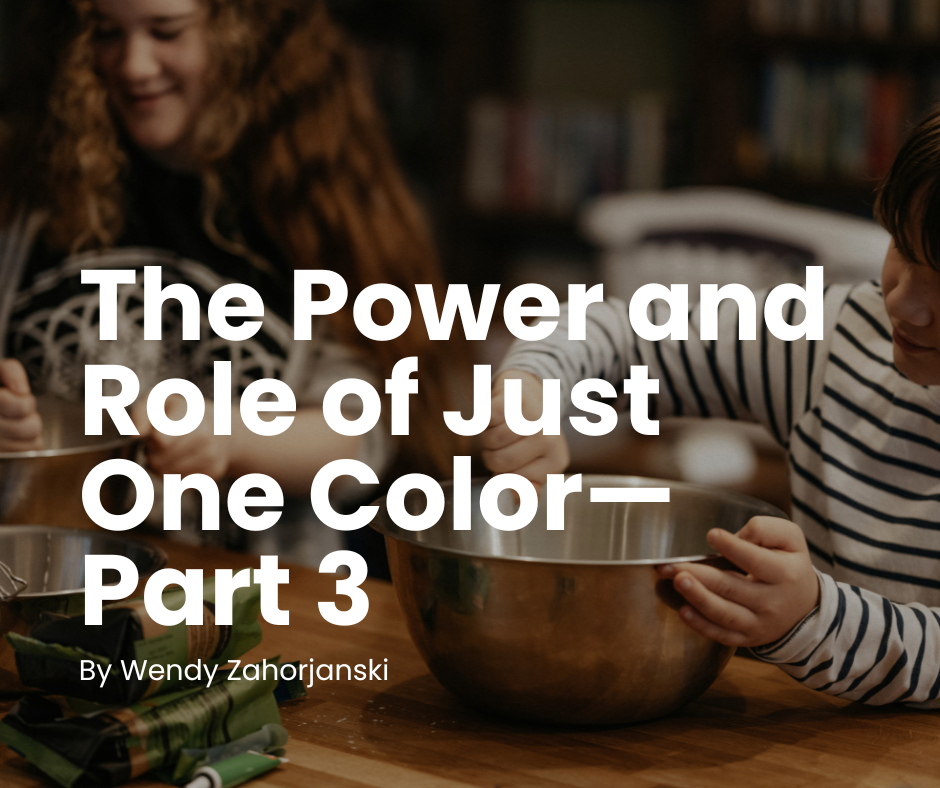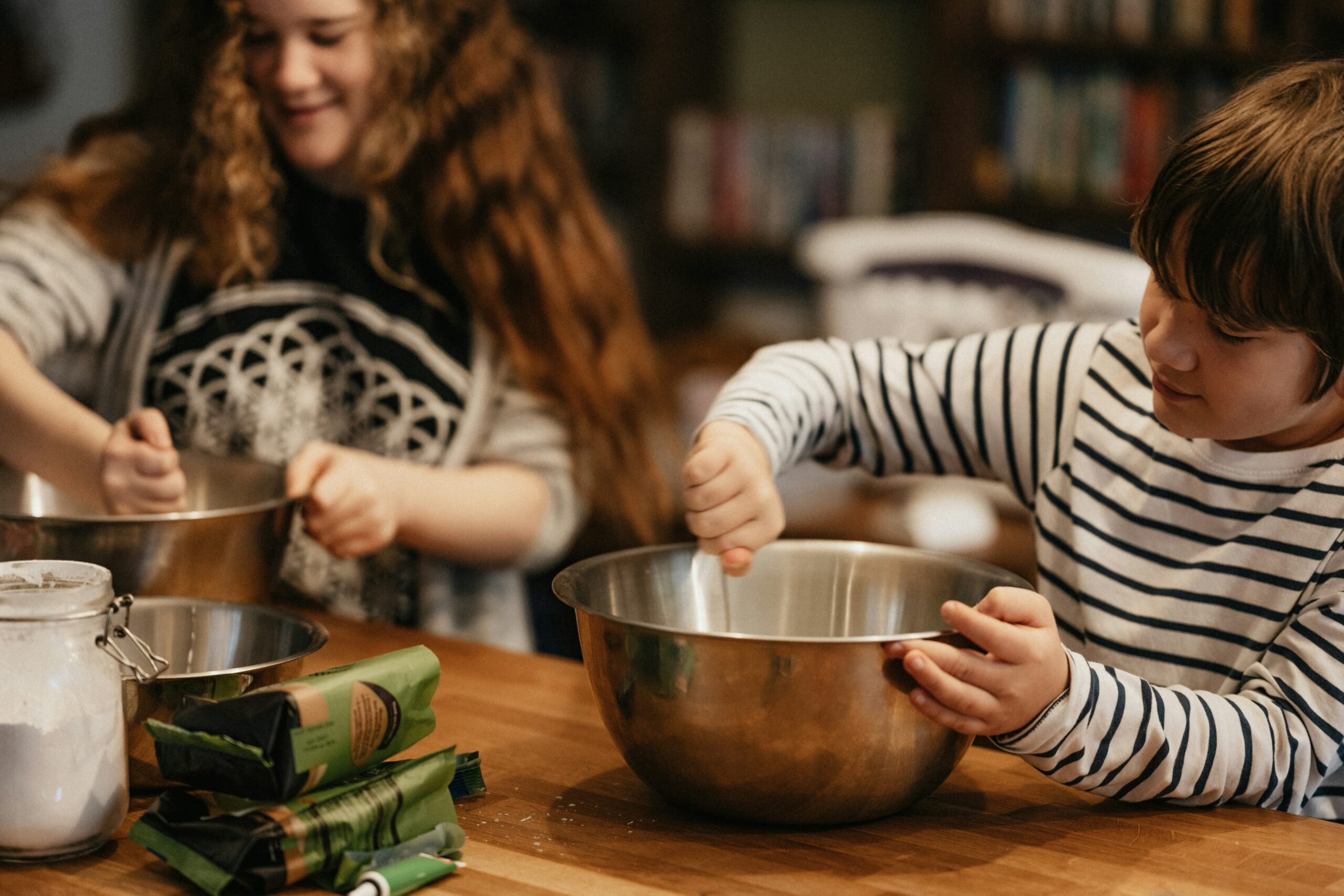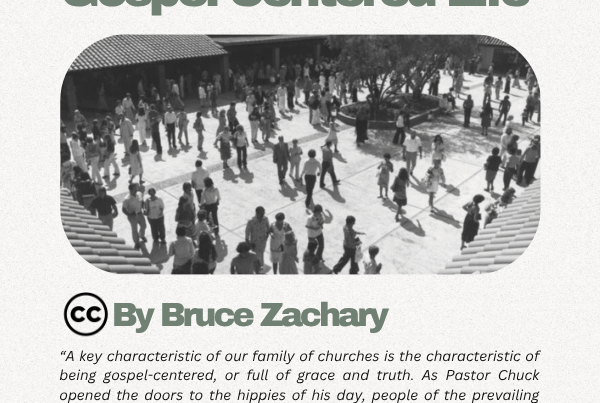
Editor’s Note: This is the third article in the Power and Role of Just One Color series. Click here to read the first article, published on February 6, 2024 and here to read the second article, published on March 5, 2024.
Hopefully, this series has you thinking about the amazing diversity of spiritual gifts and is making the case that they’re each an essential part of a healthy church. So they’re important, but how do we make these concepts come to life in our churches?
Just as the Apostle Paul wove theology and practice into each of his epistles, so should we try to weave theological truths and the practice of them into our churches’ DNA. Knowing the right answers is useless unless those answers are shaping the way we live. It’s pointless to take a spiritual gifts test, read the results, say, “Huh, that’s interesting,” and then leave it in a folder on our desktop. If our theological discoveries about spiritual gifts aren’t shaping the way we make decisions in our day-to-day, all we’re doing is adding information to our brains. We might be able to give a killer lecture on spiritual gifts, but are our churches places where the practice of them flourishes? In what kind of environment do they flourish? Gifts flourish in environments that are safe. By that, I mean there’s no comparing and belittling. They’re also environments which provide concrete opportunities for people to use their gifts. How do we stimulate this type of environment?
A Sandwich … of Sorts
We make sandwiches! Yup, that’s right, sandwiches. Bear with me …
The day before I wrote this, my five-and-a-half-year-old wanted to make a sandwich all by himself. A first. It was better for both of us if I didn’t watch because, as a recovering perfectionist, I can kill the cycle of learning by intervening at the first mistake in a nanosecond, but I told him to let me know if he needed help. I stayed in the kitchen with him but kept doing my own thing.
He pushed his stool up to the fridge door, opened it, and proceeded to get out the cheese, lunch meat, ketchup, and cucumbers. I wasn’t aware that he knew where they were before this moment. He then asked for his knife, the dull one that he’d already learned to use, and the peeler. With the addition of a cutting board, my suggestion, he stood at the table and cut an incredibly thick slice of cheese and two even thicker slices of ham. The ketchup, already on the bread, was spilling over the sides like lava flowing from an erupting volcano.
“I love ketchup,” he chuckled as he added cheese and ham.
Next came the tricky part: peeling the cucumber.
“Not toward yourself,” I reminded him as I looked over. “You can cut your finger that way.”
“Ok,” he said and thirty seconds later added, “I almost cut myself, but I didn’t. Oh, I forgot … away from myself. I did it like this instead of like this. I love cucumbers! I cut three slices, but only two fit on my sandwich. I’ll put the other one on the side.”
I turned around and saw that he was holding up his sandwich for inspection. It teetered on the plate, the hefty cucumber chunks—I can’t call them slices in good conscience—holding on for dear life. And you know what? It was perfect. I was so proud of him that I took a picture and sent it to my husband and then to my mom.
He sat eating his sandwich, or trying to, as the slip and slide that the excess ketchup created proved difficult for small fingers to grip, all with a big smile on his face. “Now I can make sandwiches whenever I’m hungry. If you’re in the other room working and Dad is on a run, I can just go make one! Uh oh, my ham fell on the floor. I need help.”
I walked over to the coffee table in the living room where he was eating. His hands were covered in ketchup and the ham was splatted on the hardwood floor. I picked it up, rinsed it off, plopped it back on the sandwich, and he ran to wash his hands.
“I put way too much ketchup,” he said from the bathroom.
When his dad got home later that day, even before his shoes were off his feet, my son said, “Dad, I made a sandwich all by myself.”
It was THE news for the day.
I wasn’t sure he could do it, but he did do it. If I hadn’t let him try it, though, I still wouldn’t know that he could do it. It was the beginning of him gaining a new skill and of me handing over control and perfection—great things for both him and me.
Embrace the Process
I’m not suggesting that sandwich making is a spiritual gift, but as I discover the gifts that the Lord has given me, and clumsily begin to try to use them, I often feel like I’m making a very ugly sandwich. I almost cut myself, everything is sliced into the wrong shape ,and the result is barely consumable. But, just as I didn’t expect my son’s first sandwich to be perfect and was just excited he was trying, the Lord also prioritizes effort over results. He knows that if I’m not willing or given the chance to make my first ugly sandwich, I’ll never learn to make one at all.
Once we’ve discovered what our gifts are, or are at least getting an idea of what they are, we start talking with others about said gifts and ones that they have. We’ve come to a new crossroads. Are we going to stay on the path of discussing and pondering or are we going to open the fridge, get out the cheese, and start making a sandwich? Why not do both? Discussing and pondering are both vital, but so is action. If someone in your church has the gift of teaching and is encouraged to use that gift but never given an opportunity to teach, how are they supposed to grow and develop that gift? Through mentorship, a seminar maybe, or talking and learning from other teachers, they could develop and grow their knowledge of teaching. But leaders of the church have the responsibility to encourage believers to “try out” the things they are learning. At some point, there must be room for a teacher to stand up and teach.
My son has watched me make a million sandwiches. He had learned what goes on the sandwich, and in what order, just by watching me. Recall that he even knew where in the kitchen to find each ingredient. Theoretically, he could make a perfect sandwich, but practically there was no muscle memory in his little fingers for it. Practice hardly ever matches theory in a perfect cookie-cutter way, so we need to adjust our expectations as leaders or mentors.
We do this naturally with kids. We give them a spoon when they are old enough to grasp it, and eventually they learn to guide it to their mouth And then slowly, we let them make their own sandwiches. We know it’ll be a process. Sometimes in church though, there’s little of this type of hands-on learning. But we need it. As difficult as it is to admit, I’m often like my kindergartener with no practical experience about a thing, even about a thing like my spiritual gifts.
I grew up in the church. I was there at least twice a week and very involved. And while they did many things well, I was rarely encouraged to explore my gifts in that safe environment that was founded on the Word of God. I needed someone to let me struggle through making a sandwich by myself. The truth is, this kind of learning will be messy. That’s fine. Just like a mom or dad will help a child who’s struggling to learn the art of sandwich making, so should spiritual mothers and fathers. They should be available to redirect the hand, slow it down, and to wipe a face when it gets ketchup all over it. They cheer on and are there when the learner gets frustrated in the learning process, but a wise father and mother will cultivate new skills by hands-on learning. Maybe the first step is a seminar or having a coffee with someone who has the gift you’re interested in exploring. Maybe it’s joining a ministry that already exists in your church or town that will help you try out your gift. Maybe it’s praying with a friend for the Lord to give you courage to start practicing using your gift. The specifics aren’t as important as is the act of stepping out and beginning.
Hands-on learning can be formal or informal. I’ve been a part of very useful seminars that had the time divided into a lecture segment and then a practical application of the lecture. Activities or workshops were planned specifically for the purpose of practicing what we’d just been learning. I’ve also learned by trying things out in our home group, which is a safe environment for me. Slowly, as I’ve tried many different things, I’m getting an idea what my gifts are and where I can invest more time and energy.
This’s not to say that I’m never asked to step out of my comfort zone and do something that I might not necessarily have a strong gifting to do. That’s a topic for another time But in those times where I’m asked to step out, I lean into the giftings of my brothers and sisters. I pull on their strengths. I may know how to make a ham and cheese like nobody’s business, but what if I’m asked to make a Reuben? (I don’t even know what it is. I had to Google it.) Then, I remember a friend of mine makes them all the time, and I pick up the phone. They walk me through each step or maybe offer to come show me how to make it just right. Through the experience, I might discover that I’ve a knack for making Reubens, or I may struggle the whole time and never make one again. Too much sandwich talk?
That point is, when our churches, whether in a formal setting or in our living rooms, encourage this type of hands-on learning, with loving oversight, I believe the giftings of each person will begin to surface. These kinds of environments also make it more difficult for a spirit of comparison to arise. If I recognize my role, like I did with my son in the kitchen, as mother, then I’m not going to laugh at someone’s teetering first sandwich and say, “I can make one so much better. Throw that in the trash; it’s no good. I’ll show you how it’s really done.” No. I know that my son, or whoever I’m in the kitchen with, is learning and so have a completely different approach. I encourage, give guidance when I think it’s necessary, and praise their efforts. I’m observing and praying. Maybe the Lord is using this moment to reveal a new gift that could encourage the entire body of Christ. What’s my role? How can I come along side to see that gift grow and thrive?
Let Them Try
Sometimes, I’m the sandwich maker in the kitchen and then there’s really no room for comparison because I can see what my sandwich looks like. If I’m not alone in the kitchen though, but part of a group of newbies, it’s trickier because my pride and insecurity are crouching at the door. But if I recognize that pride and insecurity are there and nail them to the cross, I can be freed from their power over me. I can be free to develop my new gift and free to allow those around me to develop theirs, without obsessing over who’s progressing the quickest.
Each church has to figure out how to create these sandwich-making opportunities in a way that fits into the size, age, location, and make-up of their congregation. The specifics of what those opportunities will look like are less important than the environment they’re created in. We must create places that encourage hands-on learning and be prepared for the imperfection and mess that naturally comes with that.
Spiritual gifts have an amazing potential to strengthen, encourage, and equip the body of Christ, but trying one out for the first time is intimidating. Let’s create spaces that cultivate learning and be unashamed of the imperfection that comes along the way. If you’re a leader like me, let’s encourage and tutor. Stay in the kitchen, patiently ready to answer questions or to give guidance and maybe have a few wet wipes handy, just in case. If you’re making your first sandwich, go for it! Grab an expert who’s willing to hang out in the kitchen with you and remain open to their wisdom and direction as you roll up your sleeves and start practicing your gifts.










